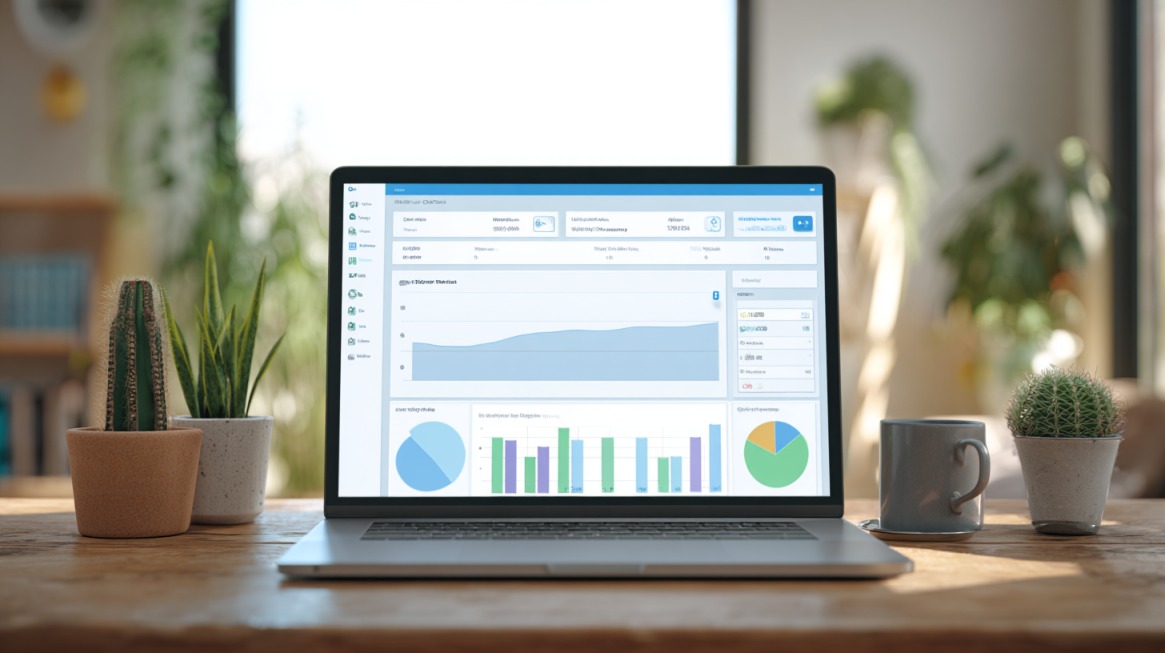Self-employment often brings big wins mixed with unpredictable dips, creating constant pressure on both personal and business stability.
Many entrepreneurs chase short bursts of planning, but long-term success grows out of consistent habits practiced throughout the year.
Strong routines make it easier to stay profitable, stay organized, and stay confident in money decisions.
Actionable steps outlined here help build reliable financial momentum month after month.
Build a Foundation with Regular Financial Reviews
Strong financial habits begin with consistent reviews that help entrepreneurs stay aware of money movement, obligations, and opportunities for improvement.
Regular check-ins create structure and remove guesswork, allowing entrepreneurs to maintain control even during unpredictable months.
Reliable review routines help businesses run with fewer surprises and clearer decisions.

Monthly and Weekly Financial Check-Ins
A steady review rhythm provides clarity and reduces financial stress.
Monthly sessions offer a wide-angle view of business performance, while weekly sessions keep ongoing activity tidy and accurate.
Short, focused reviews decrease overwhelm and prevent expenses or invoices from slipping through unnoticed.
- Income received during the period
- Outstanding invoices that require follow-up
- Recurring expenses and new variable expenses
- Cash flow direction and available funds
- Progress on financial goals or savings targets
Separating business and personal accounts brings additional clarity.
Entrepreneurs gain faster insights, reduce bookkeeping confusion, and simplify tax preparation by keeping transactions organized.
Profit Over Revenue Mindset

High revenue can create the illusion of success, but real progress depends on profit.
Entrepreneurs who make decisions based on profit avoid inflated expectations and create more accurate financial plans.
Profit-focused thinking prevents overspending during good months and supports better preparation during slower periods.
Forecasting based on profit keeps projections realistic and actionable.
Entrepreneurs who rely on real income levels develop stronger discipline and reduce the risk of making commitments they cannot support.
Automate and Organize Your Financial Systems
Strong organization helps businesses stay efficient and confident.
Systems that reduce manual work allow entrepreneurs to spend more time on client work and planning, rather than chasing receipts or sending repeated reminders.

Explore Better Options for the Self-Employed
Beyond budgeting, reviews, and tax planning, choosing the right health insurance is a vital step in securing financial stability, especially for entrepreneurs operating in countries like Germany.
Unlike salaried employees, the self-employed can choose between private (PKV) and statutory (GKV) health insurance. Each comes with different costs, benefits, and long-term implications.
To make an informed decision and ensure you’re not overpaying or under-covered, explore better options for the self-employed. This detailed guide breaks down everything from cost comparisons to eligibility and switching rules, helping entrepreneurs protect their health and financial future.
Use Software for Tracking and Accounting

Modern platforms make financial management smooth and accurate.
Automation reduces human error and frees up valuable time.
Quick invoicing, automatic payment reminders, expense categorizing, and digital receipt storage remove frustration and create cleaner records for review.
- Faster processing of recurring tasks
- Improved accuracy in reports
- Better tracking of invoice activity
- Centralized data for easier analysis
Reliable tools support smarter decisions and build confidence in financial numbers.
Stay Organized for Tax Season Year-Round
Tax preparation becomes easier when entrepreneurs maintain organized systems throughout the year.
Regular categorizing, receipt tracking, and income documentation prevent last-minute panic.
- Faster access to financial records
- Reduced chance of missing deductions
- Smooth preparation during tax filing
- Less stress during busy seasons

Entrepreneurs equipped with accurate records often avoid penalties and surprises.
Stick to a Budget and Forecast with Intention
Strong budgets guide business choices and eliminate wasteful spending.
Entrepreneurs gain confidence once spending lines match real goals and real income.
A budget anchored in monthly data helps create stability, especially when income fluctuates.
Maintain a Monthly Budget

Monthly budgeting sessions provide an opportunity to adjust spending according to current conditions.
Comparing expected numbers with actual performance reveals trends that deserve attention.
- Which expenses exceeded expectations
- Which areas stayed under budget
- Income patterns that could affect next month
- Any irregular or seasonal changes
- Adjustments needed for upcoming projects
Flexible budgeting equips entrepreneurs to adapt instead of reacting emotionally to changes.
Align Budget with Business Goals

Goals guide spending more effectively than guesswork.
Entrepreneurs who budget with objectives in mind reduce impulse decisions and avoid allocating money to areas that do not support growth.
- Does this expense move me closer to my growth target
- Is this tool, service, or investment necessary right now
- Would delaying this purchase affect progres
- Purpose-driven spending keeps resources focused and productive.
Save Smart
Intentional saving habits support stability during uncertain periods.
Entrepreneurs who plan for obligations in advance reduce financial stress and maintain smoother operations during downturns or unexpected events.
Set Aside Tax Payments Proactively
Allocating a set percentage of each payment for taxes removes anxiety around quarterly deadlines.
Keeping these funds in a separate account prevents accidental spending.
Consistent contributions help entrepreneurs meet obligations easily and stay compliant with regulations.
- Setting aside a percentage immediately after payment arrives
- Reviewing tax estimates quarterly
- Keeping tax funds separate from general operating money
- Predictability brings confidence and decreases last-minute scrambling.

Build an Emergency Buffer
Unexpected expenses or slow months can strain any business.
An emergency buffer provides protection and breathing room.
A minimum cushion of three months of expenses helps maintain operations without taking on unnecessary debt.
- Determining monthly operating costs
- Setting a specific savings target
- Creating a separate emergency account
- Adding funds consistently each month
A dedicated reserve strengthens business resilience.
Get Paid
Entrepreneurs often overlook their own income, especially during early stages or inconsistent months.
Paying yourself regularly encourages financial stability at home and keeps personal obligations separate from business expenses.
- Maintain predictable personal cash flow
- Reduce stress caused by irregular payments
- Build a healthier financial routine
- Avoid mixing personal and business expenses
- Financial separation supports long-term growth.
Manage and Minimize Debt Wisely
Debt can support expansion when handled carefully.
Close monitoring and thoughtful decision-making prevent debt from becoming a burden.
Clear awareness of interest rates, due dates, and balances helps entrepreneurs stay ahead.
- Reviewing all current obligations monthly
- Prioritizing high-interest debt
- Avoiding new debt during slow seasons
- Evaluating repayment plans regularly
Smart balance between necessary investment and cautious spending creates a safer financial path.
Final Thoughts – Small Habits, Big Profit
Small actions practiced consistently have the power to transform financial results.
Entrepreneurs build resilience once financial habits become part of everyday routines.
Starting with one simple habit this week can create lasting positive change and lead to stronger profitability all year.
Read more: Get tips on the next business networking events and meetups in Delware this year!

